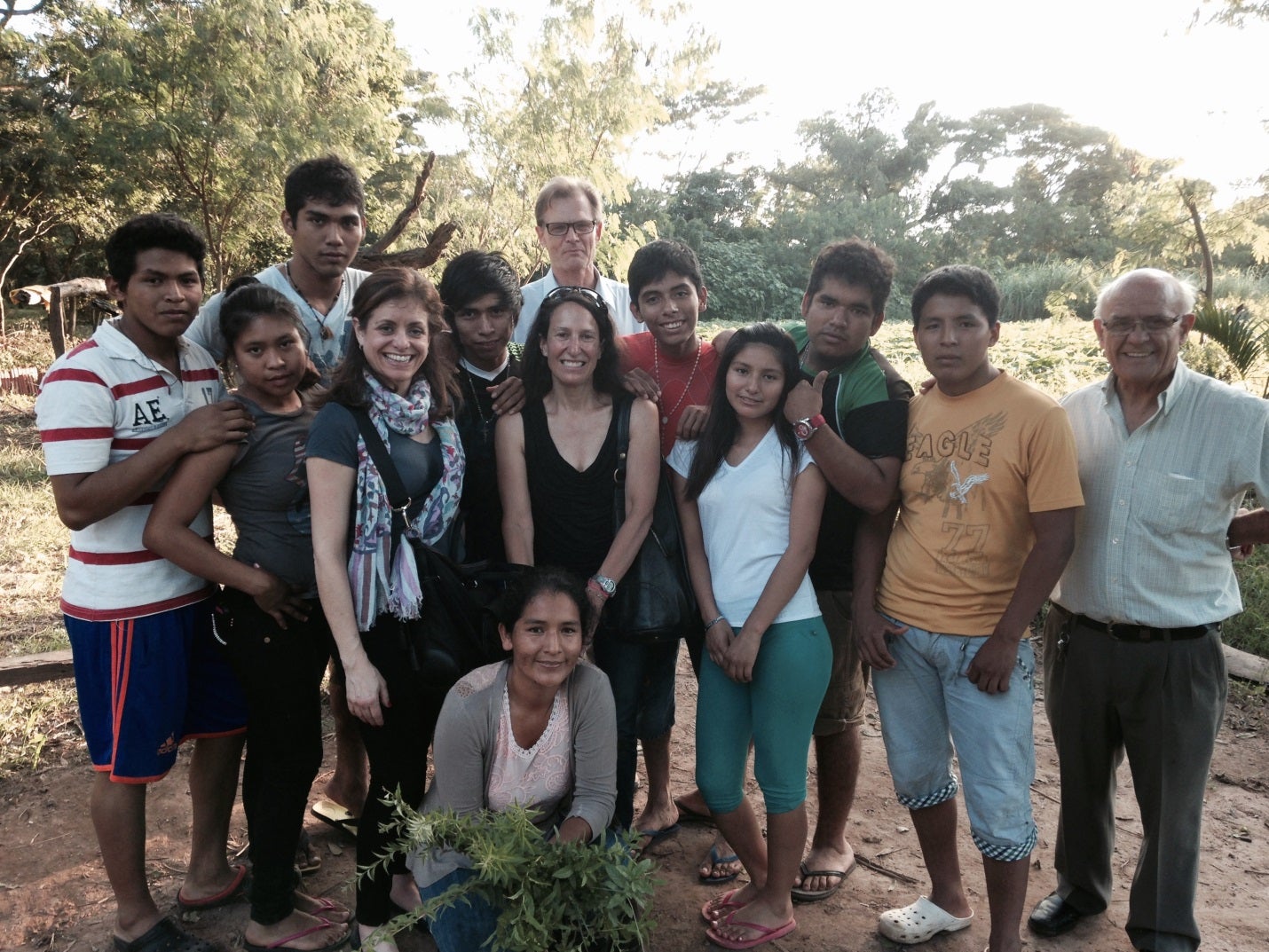The smiles and curious faces of young people of the Agricultural College Foundation at Colonia Pirai (FCP) in Santa Cruz, greeted me warmly. They are students who are part of a project that is improving the lives of the residents of a region almost forgotten: the green and quality land of eastern Bolivia.
This post will be different from the last ones. In fact, I do not say much. I just show some background and allow the protagonists of this experience (the students themselves and the managers of the project and the FCP) to talk.
[vsw id=”_9-9uYxLKRc” source=”youtube” width=”425″ height=”344″ autoplay=”no”]
(in Spanish)
What’s the story?
This Agricultural College has come a long way to become what it is today. It was founded in 1973 as a shelter for street children. During the course of the 40 years of life of this school, two criteria have remained intact: live from work and live in harmony with Mother Earth.
Under these principles, raising animals such as chickens, cows, pigs, and the growing of grains and grasses became key elements for the training process. In this way, both physical and mental work have been rated, while emphasis has been placed on ecological farming in an attempt to reduce environmental damage.
From the beginning, the problems have not been lacking. The biggest challenge was to give children and young people food and a place to live. In education, discipline problems happened daily and the whole foundation community was responsible for them.
The FCP has always been clear about the importance of formal education. In the early years, children and youth went to the closest public school or to the secondary school of Fe y Alegria. Some continued in San Alonso technical school or attended the agricultural school of Muyurina, near to Montero in Santa Cruz.
However, the poor quality of these institutions coupled with the discriminatory environment where most of the children lived led educators from FCP to make the decision of opening their own school. The school was named Apiaguaiqui, in honor of the late great Tupa Guarani Hapioeki.
In order for the animal raising in the school to become a profitable business, modern methods of selection and feeding were applied in animals breeding. The FCP began to finance itself and break new paths for the professionalization of their youth. Scholarships were obtained for young people to study in Cuba and Poland, and new technical workshops were implemented to get training in agriculture, metalworking and woodworking at the technical level. The educational offer was also extended to two social groups: rural communities and children who used to work in the suburban areas.

This is how the student demographics started to change at the FCP. At the end of the class of 1993, the Apiaguaiqui School was finally closed for lack of enrollment. With these changes in the student profile, the agricultural focus was deepened for 15-years-olds. 77% of students came from rural areas and 23% were urban students.
To support its own production of high-quality pork meat, they opened a sausage factory. Today, the FCP is a technical college that also works as a boarding school.
Only 1% of students of higher education in Bolivia come from the rural area. This school offers these young graduates from indigenous and rural areas the possibility to live and study in better conditions.

The school also operates at integrated farms: one in La Guardia (Santa Cruz) and the other in Ñemboerenda, in the Bolivian Chaco. The farms combine different crops with silvo-pastoral and agro-forestry experiences, and raising chickens, pigs, cows and ducks. Students lead all the activities and apply methodologies that are replicable in their own communities.
The challenges are enormous. These young people must overcome the weak knowledge of poor secondary education while facing psycho-emotional problems that stem from their homes or communities. Here, the students have the opportunity to learn by creating pig and poultry farms, working in factories of sausages and balanced animal food, and producing soybeans and sorghum.
All students received scholarships with food, recreation and higher technical education. And the Foundation is self-financed with agricultural production and agrobusiness.
The educational offer is based on agro-ecology, with particular attention on issues such as climate change and its effects on rural reality and student’s life.
The Inter-American Development Bank, through the Japanese Program, is supporting the FCP to strengthen its educational activities through the implementation of modular training programs at the senior technician level. These programs are interactive and practical to respond to the realities and needs of the students, their organizations and institutions in rural areas. The Bank also supports the improvement of infrastructure and new production technologies, such as egg sorting machines.

In the Bolivian context, the Agricultural College is an example of how the new education law –Avelino Sinani-Elizardo Pérez Law– is being implemented. This law promotes a strong link between education, production and community. Its results in FCP are interesting: organic production of vegetables, eggs, meat and a lot of derivatives using sustainable and appropriate methodologies for the Bolivian people of today and tomorrow.



Leave a Reply